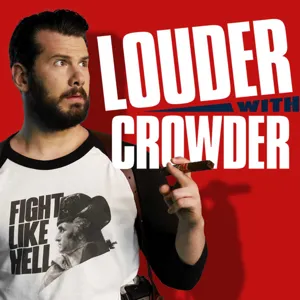Podcast Summary
Nikki Haley's shifting stance on race and history in the GOP: Nikki Haley, once a champion for racial inclusivity in the GOP, faced criticism for failing to acknowledge slavery as the cause of the Civil War during her 2024 presidential campaign, showcasing the party's ongoing debates and complexities on race and history.
Nikki Haley's evolving stance on race and history in the context of the Republican Party highlights the party's shifting narrative over the past decade. In 2015, as the governor of South Carolina, Haley called for the removal of the Confederate flag from the state capital following a racially motivated church shooting. Her speech was a step towards a more inclusive message for the party, positioning her as a potential future leader. However, during her 2024 presidential campaign, Haley was questioned about the cause of the Civil War and failed to mention slavery. This moment underscores the evolving nature of the Republican Party and the complexities of its approach to issues of race and history. Despite her earlier efforts, Haley's response in 2023 demonstrates a different tone, reflecting the ongoing debates and challenges within the party regarding its stance on these issues.
Navigating sensitive issues with nuance: Nikki Haley's political evolution showcases her ability to acknowledge emotional attachments to symbols while addressing their harmful implications, a skill essential for winning over voters.
Nikki Haley's political evolution from removing the Confederate flag in South Carolina to her more recent stance on states' rights and the cause of the Civil War, highlights the complexity and nuance of political positions. Haley's ability to navigate sensitive issues, such as the Confederate flag, by acknowledging the emotional attachment people have to symbols, while also addressing their harmful implications, is a skill that has made her a political star. However, as she seeks to win over Trump's voters, she must balance this nuanced approach with clear and unambiguous positions on divisive issues. The contrasting moments from her past, such as her response to the Mother Emanuel AME Church shooting and her leadership in removing the Confederate flag, serve as a reminder of her ability to connect with people on a deep emotional level while also taking decisive action.
Governor Haley's Support for Removing Confederate Flag and Criticism of Her Previous Remarks: Governor Haley's stance on Confederate flag removal was criticized due to her ambiguous past statements on Civil War causes and political pressure from Trump's racially charged rhetoric.
During a recent bill signing ceremony, South Carolina Governor Nikki Haley expressed her support for removing the Confederate flag from the state capitol, citing its offensive symbolism of a oppressive past. However, her previous remarks about the causes of the Civil War were criticized for being unclear. This ambiguity may have been due to her political position as a Republican nominee running against Donald Trump, who has used racially charged rhetoric, and the reluctance of some Republicans to acknowledge slavery as the primary cause of the Civil War. Haley has since clarified her statement, emphasizing her record on the issue. The controversy highlights the ongoing debate about the significance and display of symbols of the Confederacy.
Navigating Identity and Politics in the Republican Party: Nikki Haley's Approach: Nikki Haley emphasizes similarities over differences, positioning herself as a successful immigrant who believes in meritocracy and the American Dream, allowing her to represent diversity while maintaining Republican appeal. Her messaging on other issues may send mixed signals.
Nikki Haley embodies the Republican Party's earlier vision of reaching out to diverse groups of voters, but her approach to discussing race and identity during her presidential campaign is strategic and appeals to Republican sensibilities. When Haley talks about her identity, she emphasizes the importance of focusing on similarities rather than differences, positioning herself as a successful immigrant who believes in meritocracy and the American Dream. This approach allows her to represent diversity while maintaining her appeal to Republican voters. However, it's important to note that her messaging on other issues, such as her stance on the Trump presidency, may send mixed signals to some. Overall, Haley's campaign illustrates the complexities of navigating identity and politics within the Republican Party.
Navigating Republican Base's Divide: Nikki Haley's Contradictory Positions: Nikki Haley, a potential GOP nominee, balances base's Trump support vs moderates, expresses conflicting views, and faces accusations of political manipulation, but gains some traction in polls.
Nikki Haley, a potential Republican presidential nominee, is trying to navigate the demands of the Republican base, which is divided over former President Trump, and more moderate Republicans and swing voters. She has taken positions on Trump that seem contradictory, such as expressing support for a potential pardon and criticizing his actions. Haley's consistency as a politician and her commitment to the American democratic system and the ideal of the American dream have been noted. Her immigrant background has influenced her perspective. While she may be seen as a pragmatist and skillful politician, her strategy of saying what is needed to move forward in the race has also led to accusations of representing herself differently to different groups. Her poll numbers indicate that she is making some headway, but she is not currently the front runner.
Stay informed with daily news podcasts and affordable phone plans: Up First provides daily news updates, Washington Wise discusses investment implications, and Mint Mobile offers affordable phone plans starting at $15 a month
During this election season, it's essential to stay informed about the news, but it can be overwhelming. That's where NPR's Up First podcast comes in, providing three stories in 15 minutes every day to help make sense of what's happening around the world and at home. Additionally, for investors, understanding policy changes in Washington is crucial for portfolio management. Washington Wise, an original podcast from Charles Schwab, breaks down these stories and their potential financial implications. Lastly, with inflation on the rise, Mint Mobile offers a solution with premium wireless plans starting at just $15 a month. Listen to Up First every morning, tune in to Washington Wise for investment insights, and save money on your phone plan with Mint Mobile.





